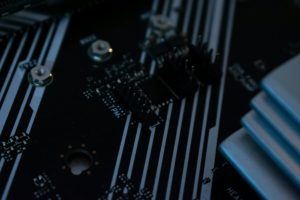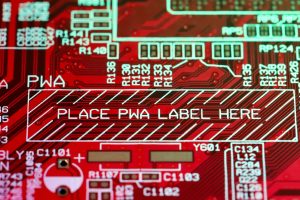A guide to the world’s most incredible electronic inventions
There’s no denying that technology has revolutionized the way we live our lives. From the invention of the light bulb to the creation of the internet, humans have continuously evolved and pushed the boundaries of innovation. And one of the most remarkable areas of technology that has consistently amazed us is electronics. The invention of electronic devices has made tasks easier, communication faster, and access to information more convenient. In this guide, we take a journey through the world’s most incredible electronic inventions that have changed the way we live, work, and interact with our surroundings.
The Invention of the Transistor
In 1947, William Shockley, John Bardeen, and Walter Brattain invented the transistor, a small electrical component that acts as an amplifier and switch. This creation paved the way for modern electronics, as it replaced the bulky and inefficient vacuum tubes. The transistor’s size and improved efficiency made it possible to create smaller and more reliable electronic devices, leading to the development of computers, televisions, and other devices we use today.
The Microprocessor that Changed Computing Forever
In 1971, a team of engineers at Intel Corporation, including Ted Hoff, Federico Faggin, and Stanley Mazor, developed the world’s first microprocessor. This tiny chip, known as the Intel 4004, had a processing speed of 740 kHz, which may seem insignificant now but was groundbreaking at the time. The microprocessor’s invention marked the beginning of the digital revolution, as it was used to power personal computers, smartphones, and almost every electronic device we use today.
The Creation of the Internet
The internet has become an indispensable part of our lives, connecting people across the world and providing access to almost unlimited knowledge. But it all started in 1969 when two computers at UCLA were connected through the first-ever internet transmission. This was made possible by the development of the first router by Leonard Kleinrock, a professor at UCLA. This invention led to the creation of what we now know as the World Wide Web, a network of interconnected information.
The Modern Era of Mobile Phones
Communication has come a long way from the days of the landline telephone. And no other device has revolutionized communication more than the mobile phone. The first handheld mobile phone was developed by Martin Cooper at Motorola in 1973. It weighed over a kilogram and had a battery life of just 20 minutes. Today, mobile phones have advanced to become sleek, powerful devices that can do much more than just make calls. With the internet, cameras, and various apps, they have become an essential part of our daily lives.
The Amazing World of Wearable Technology
Wearable technology is perhaps one of the most exciting fields in electronics today. These devices are designed to be worn as accessories, clothing, or implanted in the body. One of the first wearable devices was the calculator watch, invented by Casio in the 1970s. But wearable technology has advanced significantly since then, with the introduction of fitness trackers, smartwatches, and even virtual reality headsets. These devices have not only made our lives more convenient but have also helped in monitoring our health and wellness.
The Rise of Artificial Intelligence
Artificial intelligence (AI) has been a buzzword for many years, but its advancement in recent times has been remarkable. This technology allows machines to think and learn, making them perform tasks that were previously thought to be impossible. AI has been integrated into various electronic devices, such as personal assistants like Siri and Alexa, self-driving cars, and even in medical diagnosis. Researchers believe that AI has the potential to transform almost every aspect of our lives in the future.
The Future of Electronics: Quantum Computing
While we have made leaps and bounds in the field of electronics, there may be a revolution on the horizon with the development of quantum computing. Unlike traditional computers, quantum computers use quantum bits or qubits, which can exist in multiple states simultaneously, making them much faster and more powerful. Although still in its early stages, quantum computing has shown impressive potential in solving complex problems that are beyond the capabilities of traditional computers. It has the potential to revolutionize various industries, from finance to medicine, and is undoubtedly an incredible electronic invention to keep an eye on.
In conclusion, the world’s most incredible electronic inventions have undoubtedly transformed the way we live, work, and interact with our environment. With continuous innovation and advancements in technology, these inventions will undoubtedly continue to shape our lives in ways we cannot even imagine. We are undoubtedly living in an electrifying age, and it would be no surprise if we see even more incredible electronic inventions in the near future.










